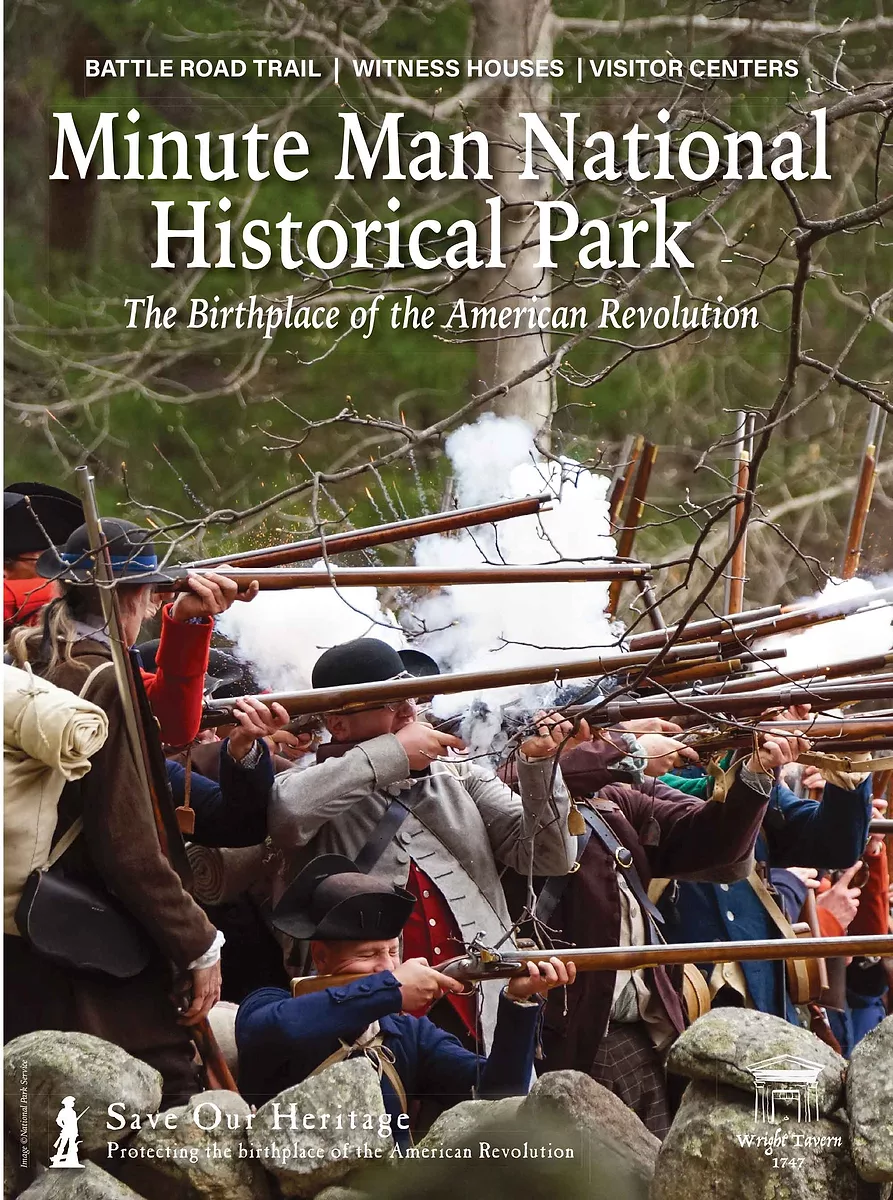Save our Heritage
Few places in America capture the spirit and legacy of a nation quite like Minute Man National Historical Park – located along the “Battle Road” corridor of Concord, Lincoln, and Lexington, Massachusetts. It was here that the first running battles of the American Revolution took place on April 19, 1775. Later, in the 19th century, Concord became the epicenter of a literary, philosophical, and environmental movement that endures today. Revolutions—whether on the battlefield or in the mind—demand vision, dedication, and sacrifice. The same is true for preserving the rich history to be found in these remarkable places.

Colonel James Barrett House
| Courtesy of Save Our Heritage, Inc.For a quarter century, the men and women of Save Our Heritage have worked to protect the irreplaceable; their mission statement sums it up: “Protecting the birthplace of the American Revolution, the cradle of the Environmental Movement, and the home of the American Literary Renaissance.”
In 2003, Save Our Heritage stepped up to save the 18th century Colonel James Barrett Farmhouse in Concord. They soon learned both major legislation and restoration would be required: pens to paper and hammers in hands. An Act of Congress would be needed to expand the boundary of Minute Man National Historical Park to include the farmland, and nine years of detailed work by devoted craftspeople would be required to restore the historic homestead that would further illustrate the story of Paul Revere’s Ride.

Hand hewing beams for the Barrett House Restoration
| Courtesy of Save Our Heritage, Inc.When the British Regulars set out from Boston on April 18, 1775, to capture arms and munitions believed to be stored in Concord, the farm of Colonel James Barrett was their main target. Though the British searched the property, they did not find the expected cache of weapons. Thanks to colonial spies and the complex web of alarm riders the evening before, the Barrett family was able to ensure the majority of munitions were safely moved to other towns and villages. Those remaining at the farm were hidden under pine boughs and newly plowed spring fields.
At the North Bridge, Col. Barrett organized the ‘embattled farmers’ and ordered them to “prime and load” but “not to fire unless fired upon.” The ensuing Battle at the Bridge and “the shot heard ‘round the world,” together with the earlier engagement at Lexington Green and the long and bloody British retreat to Boston, would change the course of history.
Having purchased the Barrett Farmhouse in disrepair, with walls threatening collapse, Save Our Heritage immediately began to restore the foundation sills and post-and-beam frame using traditional 18th century methods and materials. Window and door reproductions were carefully handcrafted based on artifact fragments that had survived and were found on site. Painstakingly restored to its 1775 condition, the farmhouse was acquired by the National Park Service in 2012 and integrated into Minute Man National Historical Park.

Louisa May Alcott’s Orchard House
| Courtesy of Louisa May Alcott’s Orchard HouseOnce the restoration of a historic landmark like Barrett’s is complete, advocacy for its protection doesn’t end. Modern development, noise, and pollution often threaten the survival and integrity of these national treasures. Barrett’s Farm, Minute Man National Historical Park, Walden Pond, and Louisa May Alcott’s Orchard House have not been spared these threats. As a result, Save Our Heritage has secured, for these sites, the Last Chance Landscape designation by Scenic America along with listings among America’s 11 Most Endangered Places by the National Trust for Historic Preservation. Partnering with organizations and individuals who believe historic sites inform and enlighten our present and future, Save Our Heritage aims to protect the very landscapes that, as Ken Burns reminds us, make it possible to hear the “ghosts and echoes of our inexpressibly wise past.”
SOH works to ensure that permanent state and federal designations and protections are enacted recognizing the historical and environment significance of the historic area which define the roots of America’s democratic, cultural, and environmental ethics. SaveOurHeritage.org
*This article made possible with the support of Save Our Heritage, a non-profit organization


